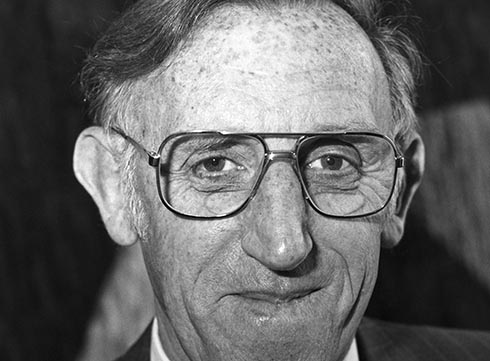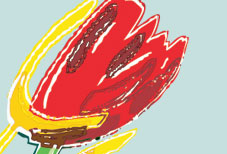 |
About Else Kooi
|
|
|
Else Kooi after whom the prize has been named, studied chemistry at the University of Groningen. As a young PhD he worked in 1956 at the Philips physics laboratory (Nat. Lab.) in Eindhoven. He studied the possibility to make transistors from silicon. In 1966 he discovered some issues which led to important innovations in the chip fabrication. His discovery, LOCal Oxydation of Silicon (LOCOS) consisted of a space-saving method to make mutual isolations between the transistors on one chip. Through this technique the packing density of the components could be considerably improved.
The procedure was, at some point in time, very important for the efficient integration of millions of transistors on one chip. All chip-manufacturers from all over the world made use of LOCOS and in nearly all ICs fabricated at the time.
From 1975 until 1979 Else Kooi was Deputy Director of the Philips Natuurkundig Laboratorium (NatLab) in Eindhoven, the Netherlands. He was was responsible for research in chip fabrication. In 1979 he returned to the IC-technology with the establishment of the 'Philips Research Laboratories Sunnyvale' in Silicon Valley.
|
  |
|
After his retirement in 1992 he continued to live in California. As a consulting professor at the Stanford University he had close contacts with the Center for Integrated Systems and he was a consultant for several companies in the field of semiconductors. On the occasion of the 158th edition of Dies Natalis of the Technical University of Delft, Else Kooi obtained the honorary doctorate on January 7, 2000.
|
|
|
In 2001 Else Kooi died in Los Altos (California USA). |
next |
|
|
|
|
|





